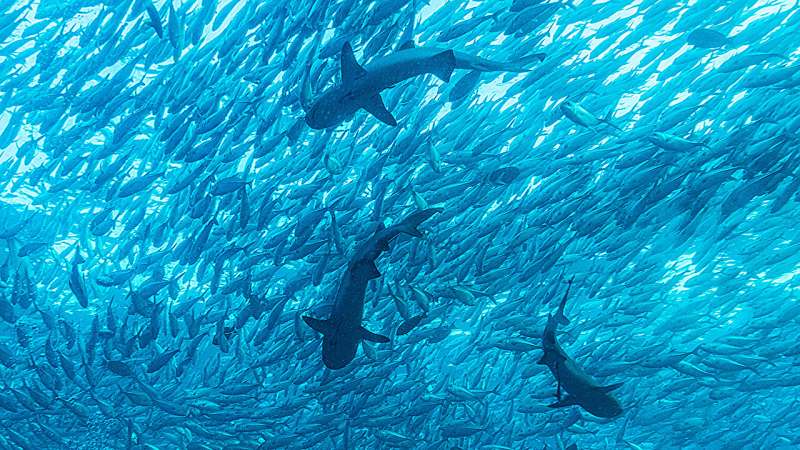This article has been reviewed according to Science X's editorial process and policies. Editors have highlighted the following attributes while ensuring the content's credibility:
fact-checked
peer-reviewed publication
trusted source
proofread
In hot water and beyond: Marine extremes escalate

Marine life in the water column depends on the right combination of water temperature, acidity, and oxygen levels, so creatures such as fish and plankton can be hard hit by large regional fluctuations in any of these parameters. When two, or even all three, are off-kilter, the environment can become uninhabitable for many species.
Because climate change has generally been heating the ocean, boosting its acidity, and lowering its oxygen levels, concerns over these regional multi-threat events—known as column-compound extremes—are growing.
Now, Joel Wong and colleagues report in AGU Advances that since the early 1960s, column-compound extremes have been intensifying: growing larger in volume, lasting longer, and occurring more often. The team came to these conclusions by using the Community Earth System Model to create a computational simulation of the upper 300 meters of the global ocean from 1961 to 2020.
The analysis suggests that triple column-compound extremes—events involving the convergence of extreme temperatures, high acidity, and low oxygen levels—occupied 39 times more ocean volume, lasted three times longer, and were six times more intense by 2020 than in the early 1960s. These triple-threat events occur in tropical waters and in the North Pacific and tend to be associated with the cycling global climate pattern known as the El Niño–Southern Oscillation (ENSO).
The simulation also showed that in general, double- and triple-threat column-compound extremes last 10–30 days and reduce the amount of habitable space in the affected water column by up to 75%. Climate change caused by anthropogenic activities is the primary driver of these escalating extremes.
These findings could form the basis for further research into the effects of column-compound extremes on different species, ecosystems, and fisheries.
More information: Joel Wong et al, Column‐Compound Extremes in the Global Ocean, AGU Advances (2024). DOI: 10.1029/2023AV001059
Journal information: AGU Advances
Provided by American Geophysical Union
This story is republished courtesy of Eos, hosted by the American Geophysical Union. Read the original story here.


















